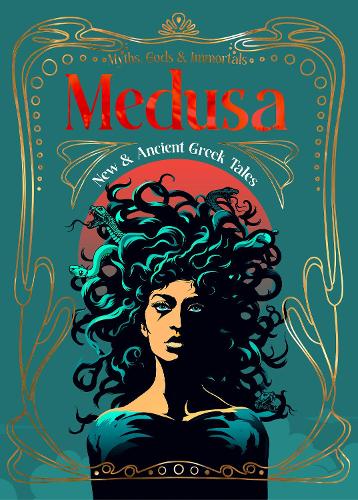
Medusa: New & Ancient Greek Tales
(Hardback)
Publishing Details
Medusa: New & Ancient Greek Tales
By (Author) Liv Albert
Foreword by Dr Miriam Robbins Dexter
Contributions by Alicia K. Anderson
Contributions by Mel Attica
Contributions by Casey Banks
Contributions by Danai Christopoulou
Contributions by Grace P. Fong
Contributions by Rhys Hughes
Contributions by Tom Johnstone
Contributions by Amanda Cecelia Lang
Flame Tree Publishing
Flame Tree Publishing
22nd October 2024
22nd October 2024
United Kingdom
Classifications
General
Fiction
Short stories
Ancient Greek and Roman literature
823.920809375
Physical Properties
Hardback
368
Width 153mm, Height 213mm, Spine 24mm
850g
Description
Building on the huge popularity of mythological retellings, here is the story of the much misunderstood Medusa, told through ancient and modern minds, in a beautiful collectable edition. Variously described as a fiend, a monster, a charming seductress who was felled by the righteous might of Perseus, son of Zeus, Medusa is perhaps the most misunderstood of mythological women. Described by male historians, poets and epic writers such as Hesiod and Ovid, there are many aspects of her imagined life which find resonance in the struggles of the outsider, the cursed and those used in the service another's vision of the world around them. This fascinating collection brings together new stories and ancient origins, offering a wider perspective on the whole life of the powerful, wonderful Medusa. Hardback, Deluxe edition, double foiled with red foil page edges
Author Bio
Liv Albert is creator and host of the top-rated podcast, Lets Talk About Myths, Baby!, and author of two books on Greek Myth. She has a degree in English Literature and Classical Civilizations and spends much of her time arguing about the mythological origins of Medusa. She lives in Victoria, Canada. Miriam Robbins Dexter, Ph.D., is the author and contributor of several books (including Re-visioning Medusa: from Monster to Divine Wisdom), over 40 articles on ancient female figures, and editor or co-editor of 16 scholarly volumes. Miriam has extensive teaching experience in Latin, Greek and Sanskrit languages at USC and comparative myth at UCLA.
